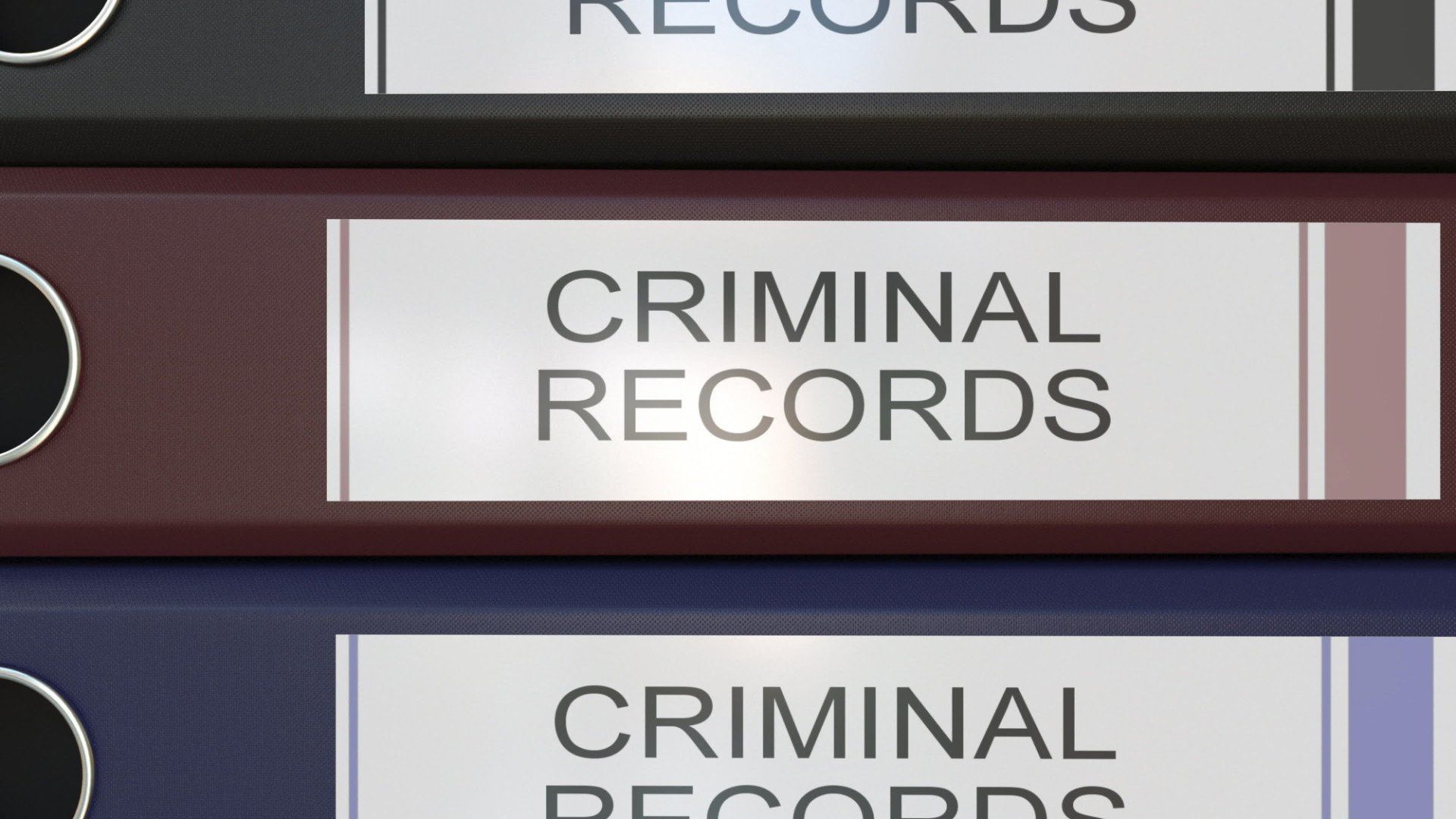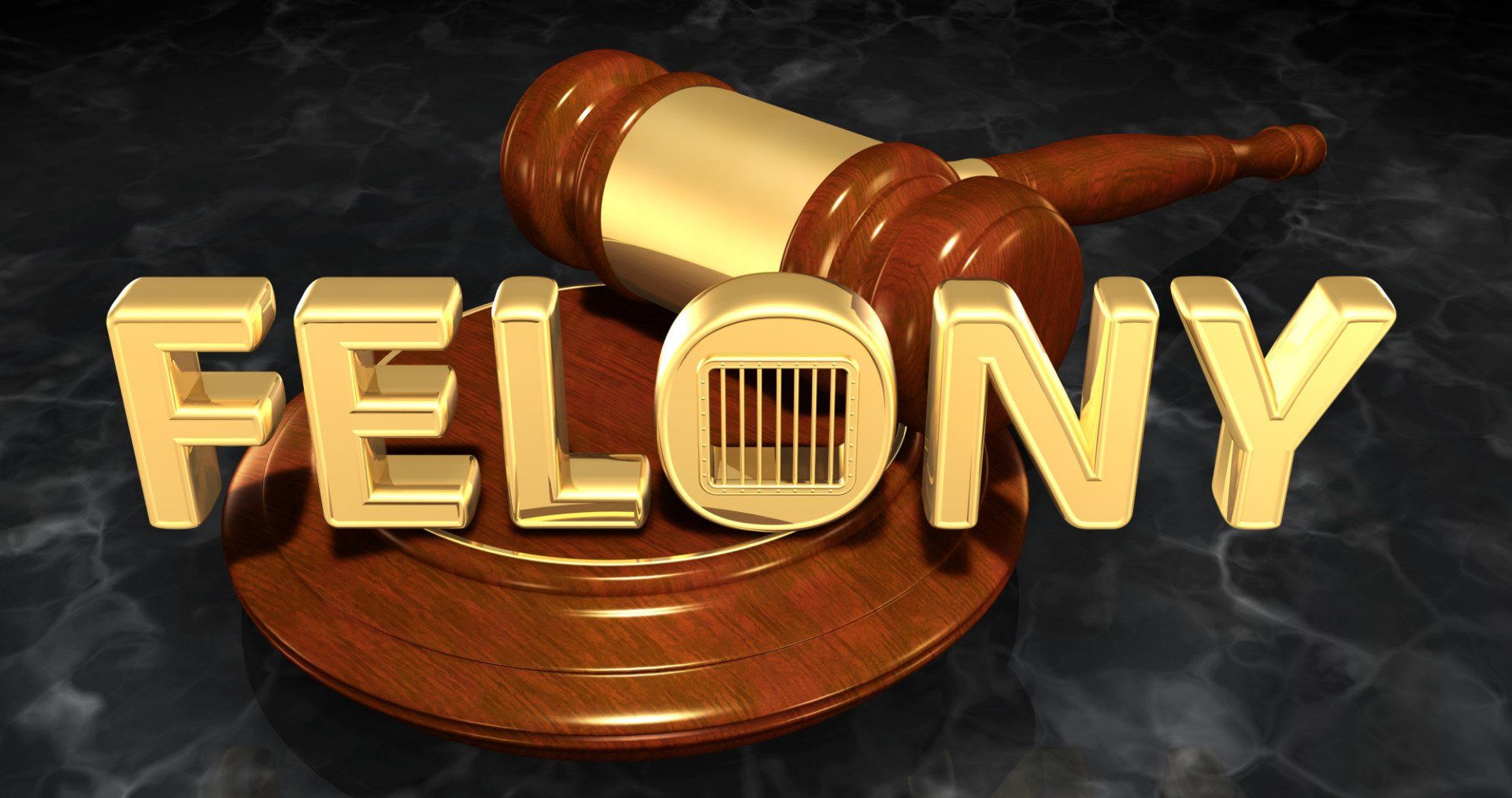Blog Layout
Expungement 101: What Is It and Who Is Eligible
Jan 17, 2020
In 2017, the Federal Bureau of Investigation (FBI), estimated more than 70 million U.S citizens with a criminal record of some sort. That means almost 30% of the population, or one in three people in the U.S.A, have been associated with a legal offense at some point in their lives.
Do they all deserve it?
If you feel like you're ready to start over, but the world might just hold your past against you, it is likely that expungement can help. However, it isn't for everyone. There are several legalities and circumstances that need to be considered before you can clear your criminal record, and start afresh.
So let's take a look into what expungement is, and what determines your eligibility.
Do they all deserve it?
If you feel like you're ready to start over, but the world might just hold your past against you, it is likely that expungement can help. However, it isn't for everyone. There are several legalities and circumstances that need to be considered before you can clear your criminal record, and start afresh.
So let's take a look into what expungement is, and what determines your eligibility.
Expungement: The Definition and the Effects
Expungement or expunction is a court-ordered sealing or clearance of a criminal record. These could include arrest records or even conviction records. While in reality, the concept may have several nuances, the principles of expungement remain the same.
Expungement seeks to:
Expungement seeks to:
- Delete a public record of a criminal case
- Restore the person to their status, prior to the conviction or arrest
Who is Eligible?
Now, state laws regarding expunction vary, but for the most part, it is allowed across most of the U.S.A. However, within these state laws, you will find that the circumstances under which you can seek expunction are limited and very subjective.
For example, the expungement laws of Texas are very different from those of Masachusetts.
So what can determine your eligibility for expunction within these state laws?
For example, the expungement laws of Texas are very different from those of Masachusetts.
So what can determine your eligibility for expunction within these state laws?
Age at the Time of Offense
Certain states like North Carolina have introduced a concept that takes into consideration the age of the offense for certain crimes. If this is applicable, the age of the offender will not be relevant, but simply how long it has been since the crime has been committed.
Florida expunges records for deferred adjudication, within 10 years of the offense.
Florida expunges records for deferred adjudication, within 10 years of the offense.
Nature of the Record
What is your criminal record? Does it include a dismissal? An arrest? A diversion?
Some states, like North Dakota, allow for the expunction of non-conviction records. Whereas, others like Ohio, may allow for expunction of very specific conviction records, provided they are only first-time offenses.
The nature of your criminal record will largely determine whether or not you are eligible. A non-conviction, first-time offense or a juvenile record is more likely to be expunged than their counter-parts.
Some states, like North Dakota, allow for the expunction of non-conviction records. Whereas, others like Ohio, may allow for expunction of very specific conviction records, provided they are only first-time offenses.
The nature of your criminal record will largely determine whether or not you are eligible. A non-conviction, first-time offense or a juvenile record is more likely to be expunged than their counter-parts.
All Offences Are Not Equal
Offenses can either be misdemeanors or felonies. These can further be classified into violent and non-violent crimes.
State laws tend to favor expunction for non-violent crimes and misdemeanors. Maryland automatically expunges some records of a misdemeanor, subject to an objection. Further, drug-related offenses are also more likely to be expunged, and several first-time offenders may be eligible for diversion programs as well.
In Texas, individuals are eligible for the sealing of most misdemeanors, deferred adjudications and certain felonies. However, they expunge non-convictions and even pardons.
State laws tend to favor expunction for non-violent crimes and misdemeanors. Maryland automatically expunges some records of a misdemeanor, subject to an objection. Further, drug-related offenses are also more likely to be expunged, and several first-time offenders may be eligible for diversion programs as well.
In Texas, individuals are eligible for the sealing of most misdemeanors, deferred adjudications and certain felonies. However, they expunge non-convictions and even pardons.
The General Circumstances
In certain situations, where the judge may identify a "grey area", like certain cases of prostitution, the defendant in question may be seen as less culpable. The circumstances of the offense will largely determine the probability of expunction in these types of situations.
Related Concepts
In addition to expungement, there also exist legal concepts that provide similar relief to those with criminal records. Let's look into what those are.
Getting Your Records Sealed
Getting your records sealed is very similar to complete expunction. However, in such a scenario, your records would be sealed to the general public, but not necessarily elsewhere. They may be considered again if you find yourself arrested in the future.
A Certificate of Actual Innocense
This goes a step beyond the expunction. It goes to show that the person with the record, should have never had it, to begin with. In contrast, expunction allows you to seal records, rather than clear you of blame entirely.
Overview of the General Procedure
The procedure of getting an expungement requires making an application to the court. Some may have applications readily available, but in some cases, it might require a more complicated process.
In cases involving convictions, most laws require the defendant to approach the same court at which the conviction was awarded. In addition, there may be other requirements like record checks, a fee, and other such formalities, depending on the state in question.
In cases involving convictions, most laws require the defendant to approach the same court at which the conviction was awarded. In addition, there may be other requirements like record checks, a fee, and other such formalities, depending on the state in question.
Finding the Right Attorney
Given the sheer subjectivity of your case and state laws, it is best to find yourself an appropriate criminal defense attorney who is familiar with the nuances of expunction.
Perhaps people change. They grow, learn and deserve a fresh start. A criminal record can often hold you back from getting a new job, a new home and so many other things that you deserve to have. So, expungement can definitely help you fix that.
Still have questions? Consult a qualified attorney right now, and explore your options!
Perhaps people change. They grow, learn and deserve a fresh start. A criminal record can often hold you back from getting a new job, a new home and so many other things that you deserve to have. So, expungement can definitely help you fix that.
Still have questions? Consult a qualified attorney right now, and explore your options!
Share
Tweet
Share
Mail
Wyde Law Blog and Case Studies
By Dan Wyde
•
20 Feb, 2024
PRESS RELEASE FOR IMMEDIATE PUBLICATION

By Dan Wyde
•
05 Oct, 2023
If you have been arrested for DWI in the Dallas Fort Worth area then you have only 15 days from the date of your arrest to request an Administrative License Revocation ( ALR ) hearing. Otherwise your driver's license will be suspended. This is NOT a court date or any date you may have received on your citation. This legal process can be confusing so contact us today by email ( go here ) or calling our office at (214) 521-9100 . Do not lose your right to drive. Call us today so we can help you keep your privilege to drive.
By Dan Wyde
•
18 Apr, 2023
D id you know that in the State of Texas there exists the possibility of a bank not paying out to beneficiaries who are designated on the account's signature card for an account listed as a " Payable On Death " (POD)? Our firm has handled such situations as they rare, and they don't fall under a testamentary asset - meaning that they are not subject to the probate courts. Recommending that clients convert their regular checking and savings accounts to have a POD designation often is used in estate planning , but this converts a testamentary asset into one of the few non-testamentary assets like a term life insurance policy. Several sections of the Texas Estates Code apply here including: Section 113.52 Rights Of Creditors Section 113.04 Types Of Accounts Many others Upon the death of the account holder, the named beneficiary(ies) should receive the remaining funds in the account subject to Texas regulations. So why would the named beneficiary not get access to the funds, especially if there is no lawsuit from other family members or creditors? One of the ways this may happen is when the signature card was signed, dated, and had the named beneficiary(ies) with the payable on death account designation at a bank which later was acquired. While the acquiring bank should have safeg0uards to ensure that the most recent signature card is properly reflected in their computer systems, the ultimate factor is the actual signature card itself. Older account holders may have signed a physical signature card at the original bank, and then they never signed a new signature card (another physical card or digitally) with the new banking institution. Another concern some people have with POD accounts is that the decedent may have named the checking/saving account's beneficiaries in one's Last Will & Testament; but the signature card on file with the bank has a different beneficiary. Since the POD-designated account no longer is a testamentary asset, thus not subject to probate, then this can cause challenges between parties who expect to receive the remaining funds. A bank also may not follow its own steps for checking a signature card before disbursing funds to the incorrect party. Banks in Texas have a step-by-step process which must be followed for POD account fund disbursement. Any missteps in this process can cause significant problems and alter the wishes of the decent as listed on his/her original signature card. This is a complex situation due to the checking/savings account, traditionally considered an estate asset and therefore subject to probate, when the exact same checking/savings account instead has the payable on death designation. Our lawyers can help you with these kinds of confusing situations and other similar estate-related, and other non-testamentary asset-related, situations. Contact us today to schedule your consultation.
By Dan Wyde
•
18 Apr, 2023
The following lists some of the kinds of charges you may face if charged with assault family violence or domestic family violence: Aggravated Assault - Serious Bodily Injury Aggravated Assault - Deadly Weapon Assault By Impeding Breath Or Choking Continuance Violence Against The Family Assault - Bodily Injury / Indecent Assault Terroristic Threat Assault - Offensive Touching Emergency Protective Orders Violation Of Emergency Protective Orders If you are, or someone you know is, facing one of the charges listed above then contact us to schedule your consultation . You may learn more about these kinds of charges from the Texas Family Code, TITLE 4. PROTECTIVE ORDERS AND FAMILY VIOLENCE: Click Here

By Dan Wyde
•
18 Apr, 2023
Did you know that an "affirmative finding of family violence" includes: Being ineligible for any order of expunction or non-disclosure of records. Lifetime ban from owning or possessing any firearms. Not being allowed to be joint managing conservator of your children. If you are in a divorce or in any lawsuit then this affects the parent-child relationship. You risk being deported if you are not a U.S. citizen. There are other concerns as well, so contact us for any assault family violence or related domestic violence charges in Dallas County, Collin County, Denton County, Rockwall County or nearby Texas counties.
About us
Discover more about our firm here: About Us.
Useful Links
Register for our newsletter
Contact Us
Thank you for contacting us.
We will get back to you as soon as possible
We will get back to you as soon as possible
Oops, there was an error sending your message.
Please try again later
Please try again later
© 2024
All Rights Reserved | Website Powered by AutomationLinks





